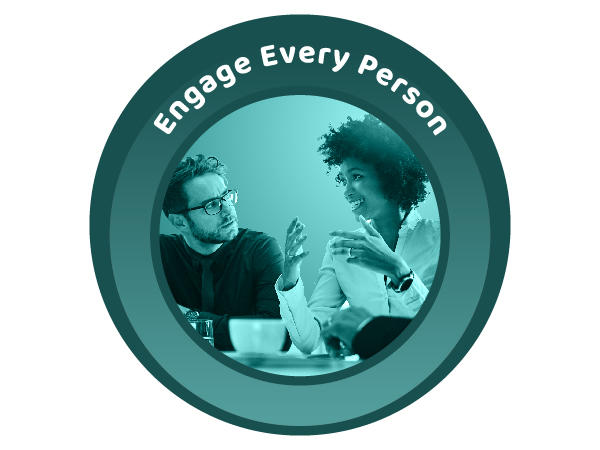All people should have fair and equal opportunities to participate in cancer research. Therefore, clinical trials and other studies need to be flexible, faster, simpler, less expensive, and achieve higher impact on outcomes important to patients. By doing so, we have the potential to learn from every patient and improve results for everyone.
The state of engaging every person today
New technologies are expanding our ability to conduct both clinical trials and observational studies. For example, with the nationwide adoption of electronic health records and an increase in wearable technologies and apps that track information such as heart rate, physical activity, sleep, and stress, more people can contribute data to our collective body of knowledge about health and disease.
Many patients note that they want to contribute to research and are willing to participate in clinical trials, but only a small percentage end up enrolling. Because of this, increasing access to trials should involve reaching potential participants in their communities and reducing the burden of participation through efforts like investing in telemedicine, which allows participants to engage in some or all research activities remotely.
Strategies to engage every person
- Enable every patient to contribute their health data and samples in ways that protect their privacy and honor their wishes for how their data are used.
- Develop and streamline methods to increase access to all types of clinical and observational studies.
- Facilitate rapid referral, access, enrollment, accrual, and retention of all populations in clinical trials.
- Incorporate clinical research participation into routine clinical care without increasing the burden on doctors or patients.
- Ensure that opportunities to participate in and benefit from research are widely available to all groups.
- Apply ways to meaningfully return research results to study participants.
Examples of NCI-supported research to achieve this goal
- The NCI Community Oncology Research Program is designing and conducting community-based cancer prevention and screening, supportive care, symptom management, and observational clinical trials.
- Anyone can ask questions in English or Spanish about cancer, participating in cancer clinical trials, and cancer-related information by calling, live chatting, or emailing NCI’s Cancer Information Service.
- The Participant Engagement and Cancer Genome Sequencing Network is encouraging participation in cancer research and support of cancer genomic sequencing programs through direct patient and community engagement.
Examples of activities across the government to achieve this goal
- The Department of Veterans Affairs TeleOncology Program allows cancer providers to reach veterans regardless of where they are located, delivering screenings, diagnostics, and treatment for medical oncology.
- The Patient Engagement Collaborative is a joint project between the FDA and the Clinical Trials Transformation Initiative (CTTI) in which the patient community, FDA, and CTTI discuss many topics for improving communication, education, and patient engagement related to medical product regulation.
- The Inside Knowledge campaign, produced by the Centers for Disease Control and Prevention, encourages women of all ages, races, and ethnic groups to recognize warning signs of gynecologic cancer.
